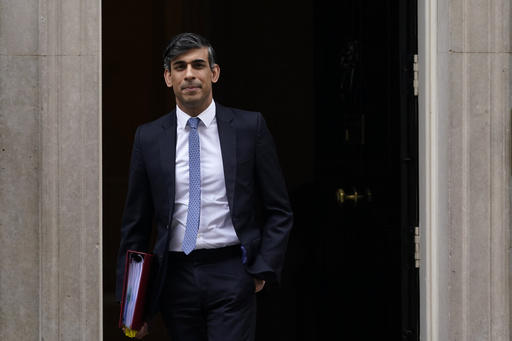LONDON (AP) — The British government published an official definition of “extremism” on Thursday, and said groups that get the label will be barred from receiving government funding.
It’s unclear who will be on the list, and critics say branding nonviolent groups as extremist could undermine freedom of speech and worship, or risk unfairly targeting some people, such as Muslims, and create more division.
The government defined extremism as “the promotion or advancement of an ideology based on violence, hatred or intolerance” that aims to destroy others’ rights and freedoms or “undermine, overturn or replace the U.K.’s system of liberal parliamentary democracy and democratic rights.”
The government did not provide examples of extremist groups, and is not expected to publish a list of such organizations for some weeks. But Communities Secretary Michael Gove pointed to the threat from the extreme right and Islamic “extremists who are seeking to separate Muslims from the rest of society and create division within Muslim communities.”
“This is not about banning organizations,” Gove told the BBC on Thursday. “This is simply saying, ‘this is an organization that we in government think it would be inappropriate to fund or engage with.’”
Islamic and civil liberties groups said they worried the definition would be used disproportionately on Muslims.
Qari Asim, chairman of the Mosques and Imams Advisory Board, said the proposed definition may not be applied consistently.
“If it’s left to people to apply any definition of extremism and call anyone extremist at their whim, then that is going to create huge division in our society,” he told the BBC.
The Muslim Council of Britain warned that the proposals were “undemocratic, divisive, and potentially illegal” and “may involve defining established Muslim organizations as extremist.”
“With elections looming, it’s unsurprising that the government is resorting to this desperate tactic in the culture war,” said Zara Mohammed, the group’s secretary general.
The Church of England’s most senior clerics also criticized the government’s plans, warning that the new definition of extremism threatens the right to worship and peaceful protest.
The announcement comes two weeks after Prime Minister Rishi Sunak made a rare televised speech outside 10 Downing Street to denounce “a shocking increase in extremist disruption and criminality,” which he linked to the Israel-Hamas war.
Reports of both antisemitic and anti-Muslim abuse in Britain have soared since Hamas’ Oct. 7 attack on Israel, which triggered the war and Israel’s invasion of Gaza.
Mass pro-Palestinian protests have drawn hundreds of thousands of people to central London to call for a cease-fire. The protests have been overwhelmingly peaceful, though there have been dozens of arrests over signs and chants that alleged support for the militant Hamas group, a banned organization in Britain.
Jewish organizations and many lawmakers say the mass marches have created an intimidating atmosphere for Jewish Londoners, though members of the Jewish community have been among those on pro-cease-fire marches.
Gove said the new definition does not criminalize anyone and is “not a restraint on free speech” or aimed at stopping protests.
“Today’s definition applies only to government and makes it clear that we will keep these organizations at arm’s length so they can’t benefit from access to government and its funds,” he said.
Source: post





